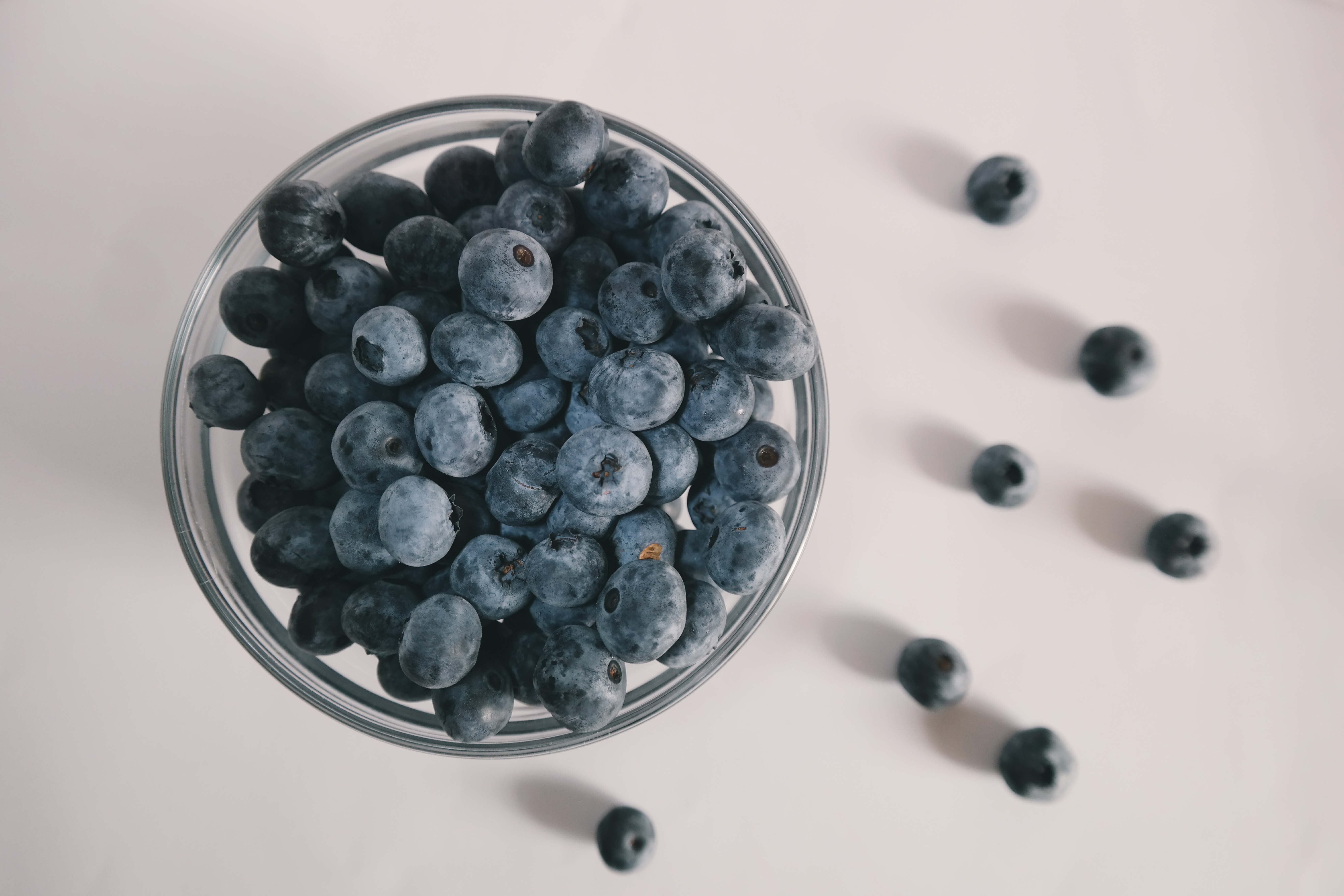This article is from PRAXIS volume 16, issue 2: "Fasts and Feasts" (Winter 2017).
As Orthodox Christians, we have our own private nutrition consultant. The Physician of our souls and bodies inspired the liturgical calendar that outlines our plan for when to fast and when to feast and prescribes for us food to care for both body and soul alike.
Today is the joyful forefeast of the time of abstinence, the bright threshold of the Fast. Therefore, brethren, together let us run the race with confident hope and with great eagerness.
– from Ode One, First Canon of Cheesefare Monday
“Joyful” and “abstinence” in the same sentence; what a beautiful paradox, and one that is woven throughout our Holy Orthodox Tradition. It leads our hearts to the correct path when embarking on the journey of a prescribed fast.
Fasting is a choice we make. It is an earthly sacrifice that we willingly make out of love—our love for God. Through the fasts, we labor to empty ourselves of worldly pleasures so that we may be open to the will of the King of all.
Extended fasting periods encourage us to discipline ourselves. Through fasting we ask God to become the potter of our souls and bodies: to form us into vessels filled with His unending love. We seek Him, desiring our cup to overflow. Proper fasting is an ancient practice that, in turn, also aids us in joyful feasting.
We Must Fast to Properly Feast
It would be ironic to eat foods during a fasting period that tantalize our palates, but with all the food luxuries and conveniences in our modern-day grocery stores and eateries, fasting with basic foods can get overwhelming. However, during these times, we are called to simplify our lives and our eating habits, reduce worldly entertainment and free up our schedules to serve others in need. We ought to also make time to attend additional church services.
Love is the fruit of prayer … Patiently abiding in prayer signifies a man’s renunciation of himself. Therefore, the self-denial of the soul turns into love for God.
– St. Isaac the Syrian
Fasting periods are a tool for deepening our prayer life, practicing silence and focusing on the kingdom that dwells within: “For indeed, the kingdom of God is within you” (Luke 17:21).
Natural, Real and Simple

During a fast, butter is out but that should not mean margarine is in. During a fast, cream is out, but that should not mean the chemical concoction of nondairy creamer is in. We need to stick to the “real deal,” as it were. In addition, we need to keep the fasts simple.
We live in a culture that offers immediate gratification when it comes to food: whatever type of food we want, we can usually have it quickly. This makes it challenging to practice humble eating. Below are some strategies to keep our fasting food choices a bit on the meeker side. We need to focus on limiting foods that contain fake ingredients and being mindful of the amount of food consumed.
Eat Foods Created by God
Then God saw everything that He had made, and indeed it was very good.
– Genesis 1:31
We should strive to limit foods that contain the following:
- high fructose corn syrup
- partially hydrogenated oils
- artificial flavors
- artificial food dyes (Red Dye 40, Yellow 5 Lake, etc.)
- artificial sweeteners (sucralose, aspartame, etc.)
- potassium bromate
Many of these and other additives and fake ingredients can lead to chronic inflammation in the body, which in turn is linked to serious health problems such as diabetes, cancer and heart disease. Let’s eat from the Garden of Eden, always reaching for and serving foods that have been with us from the beginning of time and made with ingredients that came to us from God, the Creator.
Try to Eat Less
Sitting at meals, do not look and do not judge how much anyone eats, but be attentive to yourself, nourishing your soul with prayer.
– St. Seraphim of Sarov
This is certainly sound advice. Here are a few more guidelines to eat less and nourish our souls more during fasts:
- Limit snacking between meals.
- Decrease the amount of low-nutrient “treat” foods in your home and workplace. It’s easy to snack on chips or cookies if they are around, so reducing the temptation by removing them from these areas is wise.
- If you really need to have a snack, try to eat something that is nutrient dense. Some examples are: baked sweet potato, a piece of fruit with nut butter, trail mix, nuts, sautéed vegetables, hummus and veggies, and olives.
Inspire Prayer Through Eating and Not Eating
An ancient story from the Holy Fathers highlights this concept so well:
A brother felt hungry at dawn, and struggled not to eat till nine o’clock. When nine o’clock came, he made himself wait till noon. At noon he dipped his bread and sat down to eat, but then got up again, saying, “I will wait till three.” At three o’clock he prayed, and saw the devil’s work going out of him like smoke; and his hunger ceased. – from "The Desert Fathers: Sayings of the Early Christian Monks" by Benedicta Ward
You could also try what is known as the sixteen-hour fast. In this practice, one goes sixteen hours out of the day without food and only eats during an eight-hour window. This is an approach to eat less and pray more (and, as a bonus, you may also notice weight loss).
Physical hunger is a reminder that drives us to prayer. When hungry, pray. When it’s time to eat, pray. When finished eating, pray.
Mindfulness at Meals Is Crucial During and After a Fast
… God bestows His gifts on the simple, lowly and obedient soul. The man who is obedient and temperate in all things—in food, in speech, in movement—receives the gift of prayer from the Lord Himself, and prayer continues without difficulty in his heart.
– St. Silouan the Athonite
When we pay closer attention to what we put in our bodies, this awareness alone helps us control our portions. When fasting and when feasting, we must always remember to eat real foods that satisfy with their basic essence. The alternative foods are so often loaded with artificial additives, and their chemical design alone may create in us an unhealthy food craving. Dr. Sue Decotiis, a weight-loss specialist and board-certified internist, explains this, as described in a 2014 Time magazine article:
Whether they are in your diet soda or sprinkled in your coffee, artificial sweeteners (aspartame, sucralose, saccharin and others) excite your brain cells, making them think they are about to get a sweet serving of energy (aka calories), and then let them down—hard, Dr. Decotiis says. The upshot: You may crave—and eat—more sweets throughout the day, trying to make up for the letdown. Over time, this process can actually affect the hunger control centers of the brain, she says.
Work with God’s Design
Devils take great delight in fullness, and drunkenness, and bodily comfort. Fasting possesses great power and it works glorious things … To fast is to banquet with angels.
– St. Athanasius the Great
God designed the eating process to be slow and for us to take our time with food. We don’t feel full after eating two bites in twenty seconds. At least fifteen minutes are needed after eating for our bodies to feel satisfied. God is calling us to pause, break and eat mindfully. Many of us have had the experience of taking that extra bite that pushes us over the edge and makes us overfull (especially around the holidays). A slower eating discipline allows us to leave the table feeling just right and knowing that we left the over-the-edge bite behind.
Eating a prepared meal is a time of thanksgiving. I recall my auntie, a Greek Orthodox Christian from Jordan now living in Chicago, trying to give a literal translation of the word sahtain from the Arabic language. This word is a common response when someone prepares a dish and you eat from it. You tell the cook “thank you,” and the cook responds with “sahtain.”
For a long time, I heard this word simply translated as “to your health.” But my auntie, with her precious accent and humble heart, explained to me: “It means much more. This word means, ‘Good! I’m glad you liked it, and now I hope God does something with it for His benefit and to benefit your health.’” Now, my auntie is not a linguist, but I like her translation of this word because it illustrates a beautiful truth about food and eating. We should ask God that our eating may fuel us as His servants; this helps us to be present while eating, appreciating every bite and the blessing eating truly is.
When fasting and when feasting, practice mindfulness at the meal. Remember that it is quality and not quantity that counts! Take a bite and enjoy that bite. Savor the taste, and appreciate the way God created our miraculous bodies to partake in this facet of His creation. Make the meal and the moment matter!
Let us purify our senses and we shall behold Christ, radiant and unapproachable light of the Resurrection, and shall clearly hear Him say, ‘Rejoice!’ as we sing the song of victory.” – A portion of Ode One from the Paschal Canon
When we keep communion with God at the core of our fasting and feasting practices, we are better prepared to partake in the “radiant” festival of Pascha and other celebrations of our Church!
Rita Madden (MPH, RD) is the Nutrition Director for Mediterranean Wellness. She is the author of Food, Faith and Fasting: A Sacred Journey to Better Health, now available on Orthodox Marketplace (orthodoxmarketplace.com). Rita hosts the podcast Food, Faith and Fasting: Ancient Ingredients for Modern-Day Health on Ancient Faith Radio (ancientfaith.com/podcasts/foodfaithfasting) and leads workshops on this subject matter on a nation-wide level. She resides in Honolulu, Hawaii.

